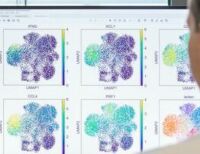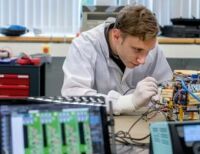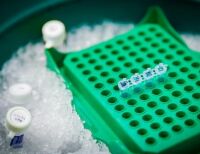 Daniel Rueckert is a professor for Artificial Intelligence in Healthcare and Medicine at TUM.
Daniel Rueckert is a professor for Artificial Intelligence in Healthcare and Medicine at TUM.
Image: A. Heddergott / TUM
Digital medicine is opening up entirely new possibilities. For example, it can detect tumors at an early stage. But the effectiveness of new AI algorithms depends on the quantity and quality of the data used to train them.
To maximize the data pool, it is customary to share patient data between clinics by sending copies of databases to the clinics where the algorithm is being trained. For data protection purposes, the material usually undergoes anonymization and pseudonymization processes – a procedure that has also come in for criticism. “These processes have often proven inadequate in terms of protecting patients’ health data,” says Daniel Rueckert, Alexander von Humboldt Professor of Artificial Intelligence in Healthcare and Medicine at TUM.
















